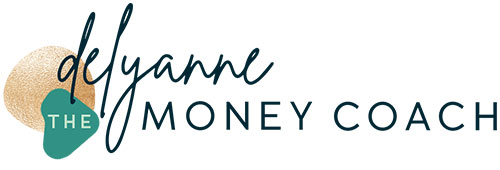Delyanne Barros is a contributor to Forbes. This article was originally published on Forbes.com on March 22, 2023.
The federal government froze student loan payments in response to the Covid-19 pandemic. No one could have foreseen that the pause would still be in effect three years later. After the government’s eighth extension of the payment freeze, SoFi— a student loan lender and refinancing company— filed a lawsuit to block any more extensions of the student loan freeze and restart payments for borrowers.
In its complaint, SoFi, which has a $5 billion valuation, claims that it has lost approximately $150 million to $200 million since the federal freeze started. However, it is specifically challenging the latest and eighth extension of the freeze on grounds that this action stretches beyond the authority provided by the HEROES Act since there is no ongoing national emergency. SoFi claims that it will lose another $30 million due to the latest extension.
SoFi is a private student loan lender and refinancer so how has the federal loan freeze affected its refinancing business? According to the complaint, SoFi cannot compete with the government’s loans which are currently set to “0% interest rates and for which any ongoing repayment of the principal is entirely optional.”
SoFi simply cannot make a better offer to entice borrowers to refinance their federal student loans as private ones. What borrower would choose to refinance at a higher rate and resume payments when they don’t have to?
However, SoFi will have to show that it will be able to capture the business of the customers that it is now forcing into repayment. Whether the company will be able to meet that burden of proof in court is too soon to tell. Borrowers’ reactions to SoFi’s lawsuit might be a leading indicator.
Customers Respond To SoFi’s Lawsuit
Although the freeze has negatively impacted lenders like SoFi, it has been a financial game-changer for millions of borrowers. According to a study by Upgraded Points, borrowers collectively saved more than $82.7 billion in interest payments. More than 30 million borrowers saw their credit scores dramatically improve since they were no longer delinquent on their loans. Some individuals even saw their scores jump more than 100 points. The pause also lead to more borrowers qualifying for student loan forgiveness under the Income Driven Repayment plans and the Public Service Loan Forgiveness program.
SoFi states that its mission is to “help people reach financial independence to realize their ambitions.” However, many borrowers fail to see how blocking the student loan freeze achieves this mission. When the lawsuit became public, borrowers took to social media to express their anger while some even stated that they would be cancelling their account with SoFi.
Lauren LeBlanc, a physician assistant and food blogger, was a SoFi customer until she heard about the lawsuit. LeBlanc decided to close her checking and savings accounts because she believes SoFi’s actions are especially “hypocritical” and an example of “true corporate greed” since SoFi had “over a million dollars of their own PPP loans forgiven.”
LeBlanc’s student loans are currently on hold thanks to the student loan freeze. She had borrowed the money in order to become a physician’s assistant in hopes that this career path would help her secure a job that would pay her a livable wage while allowing her to pay off her loans. However, that has not been the case. Since the pandemic, she has taken several pay cuts due to a loss of clients. The student loan freeze has at least provided some breathing room and has stopped her loans from growing any further.
Influencers Respond To SoFi’s Lawsuit
In addition to its customers, social media influencers have also been voicing their opinions about SoFi’s decision to sue. As part of its branding strategy, SoFi has leaned on social media to reach their core audience to promote many of its financial products, including student loan refinancing. However, this new lawsuit has surprised and alienated some of the influencers who work with SoFi.
Some influencers have even gone as far as publicly announcing their disappointment with SoFi’s actions and would no longer promote SoFi on their platforms. One of these influencers is Daniella Flores, a blogger who writes about freelancing opportunities. Flores was both a customer and an influencer who promoted SoFi’s services. She had originally chosen SoFi as the brokerage for her 401k rollover. However, after hearing about the lawsuit she quickly decided to not only move her accounts to Fidelity, but also end her brand partnership with SoFi. Flores also tagged SoFi on several Instagram posts and emailed the company to explain why she was ending her partnership, but there was no response from SoFi to any of her posts or emails.
“When they say their mission is to help people reach financial independence, but only if their profits don’t suffer, that’s extremely problematic to me,” said Flores. Flores is looking to work with companies “that challenge the current financial system in America and seek to change it, not perpetuate it for more profit.”
If SoFi’s lawsuit is successful it would cause more than 40 million borrowers to start repayments sooner than expected. However, lawsuits take time and it’s unlikely that the current pause will be affected. SoFi is likely hoping to prevent any plans to extend the current freeze. The lawsuit is currently working its way through the D.C. District Court and oral arguments have yet to be scheduled so it’s unlikely that any decisions will be issued prior to July of this year.
The real question is whether SoFi’s decision to protect its shareholders over its potential customers will pay off or has this lawsuit caused them more harm than good? A business can still exist without shareholders, but it cannot exist without customers.






